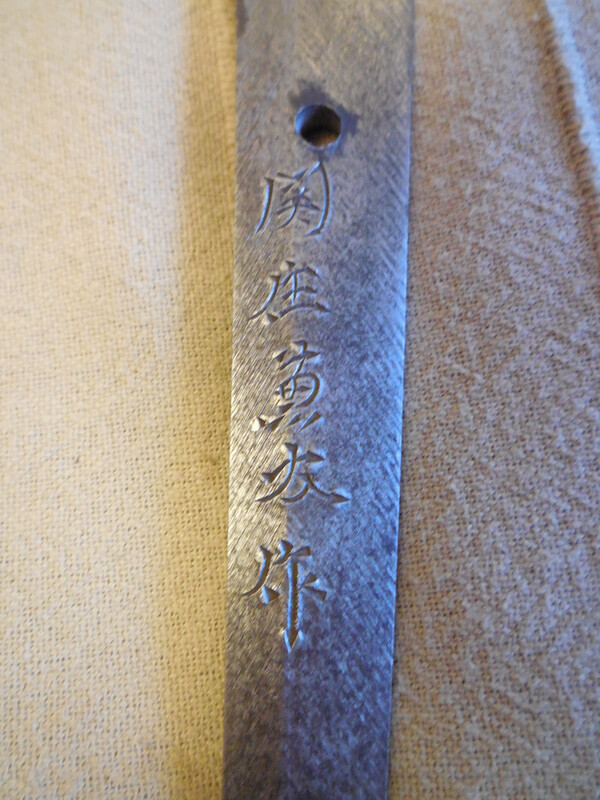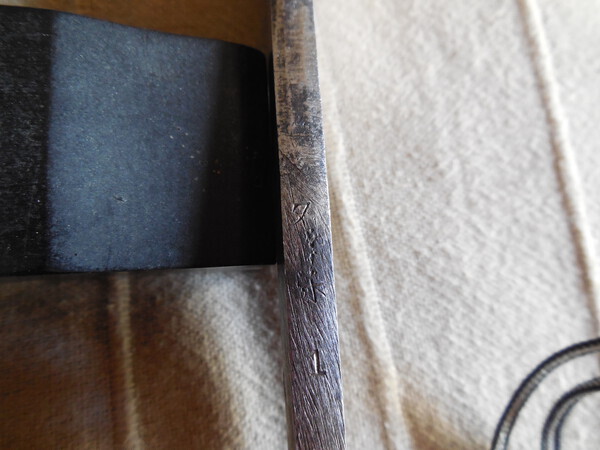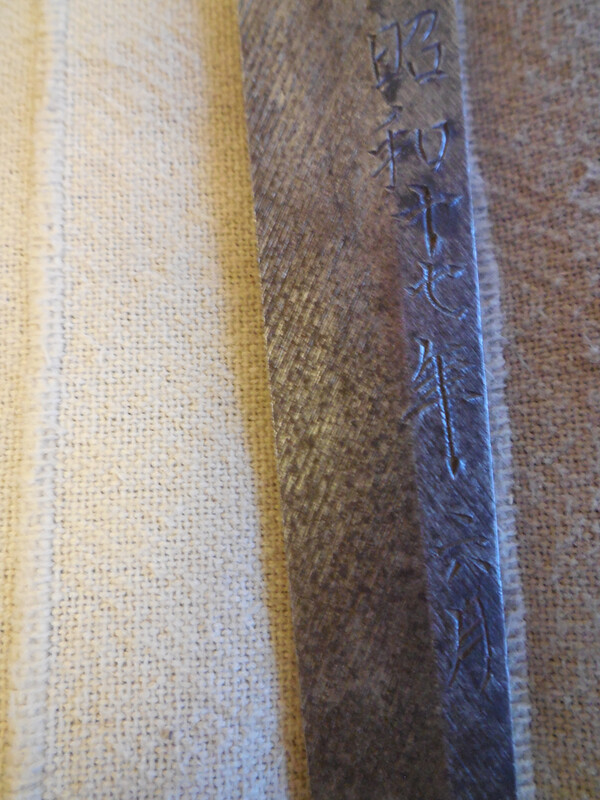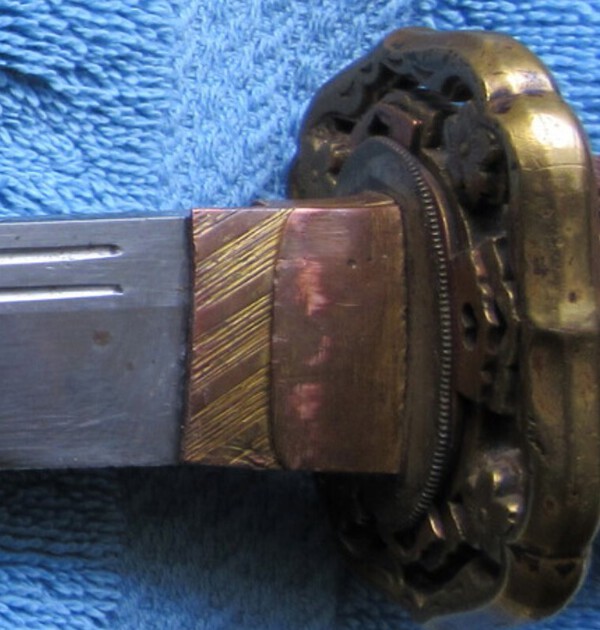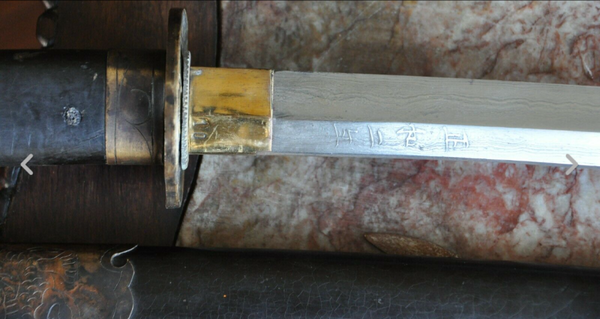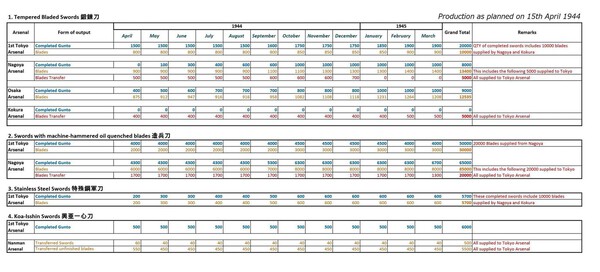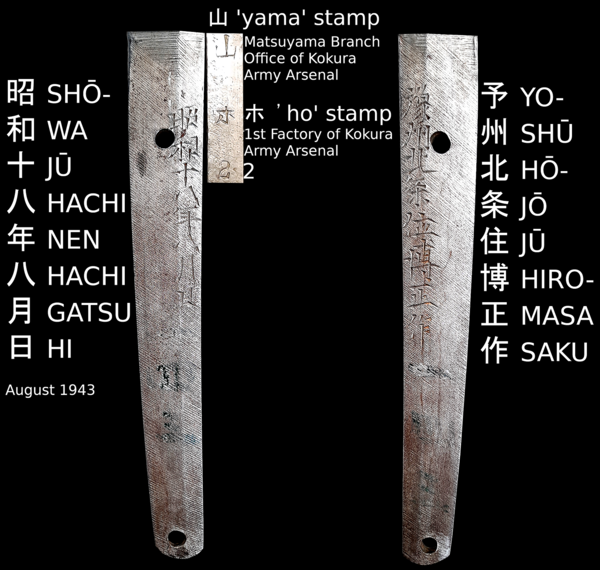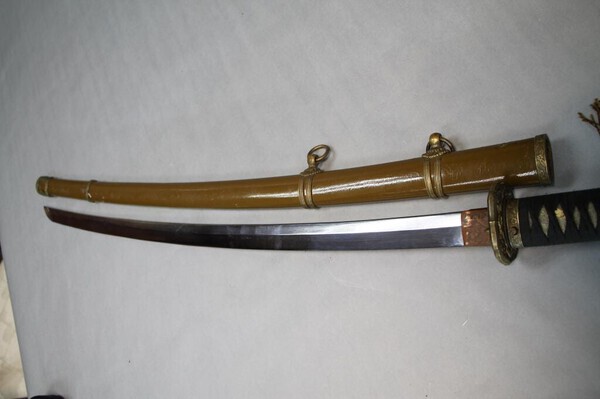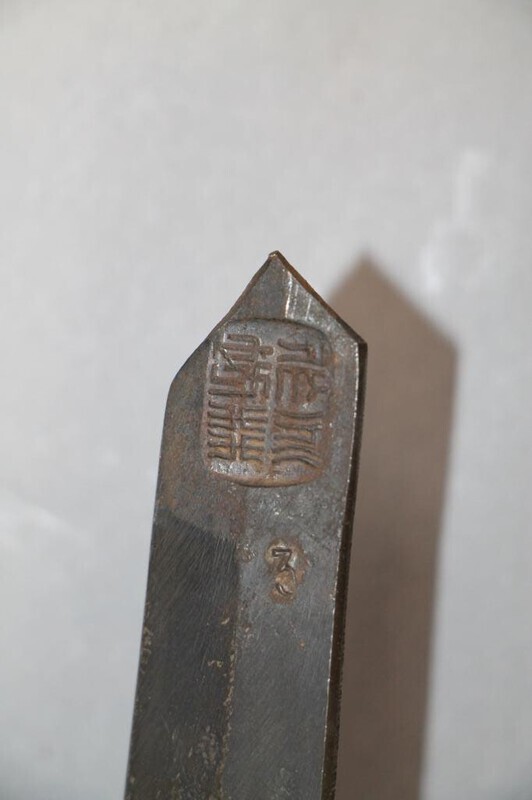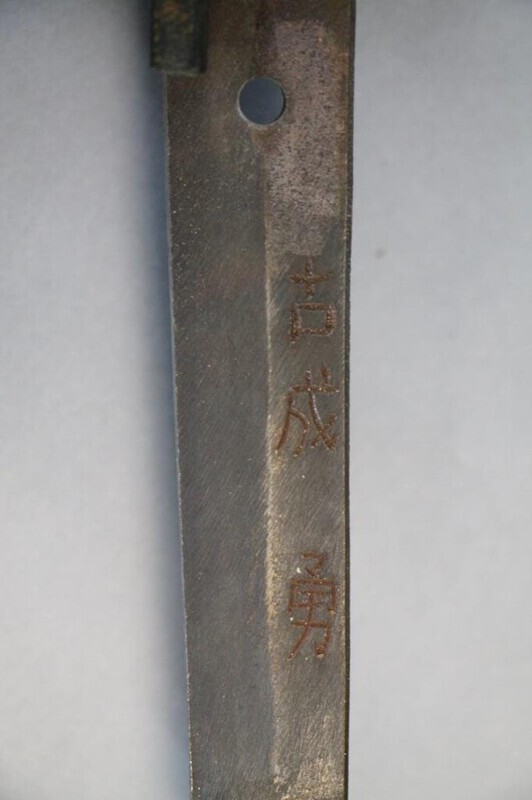-
Posts
14,094 -
Joined
-
Last visited
-
Days Won
169
Content Type
Profiles
Forums
Events
Store
Downloads
Gallery
Everything posted by Bruce Pennington
-

Arsenal Mark on RJT sword Fittings
Bruce Pennington replied to george trotter's topic in Military Swords of Japan
Ok, I know - too much stuff all at once! But this one blew my socks off. A Miwa Kanetomo, June 1942 with a "Wa Ho 1" on the mune. It doesn't seem to have a star, but he was RJT at some point in the war. Best I could find on his location was "Seki". -

Arsenal Mark on RJT sword Fittings
Bruce Pennington replied to george trotter's topic in Military Swords of Japan
Just came across a second blade from Nobutake for my files. The two are: 105 Dec 1942 218 Jun 1943 Considering George's average output for an RJT smith as 10/month, this guy was really cranking the blades out! Or he had more helpers than other guys. -
Chris, With the double ana, I'm assuming it's mounted in Rinji seishiki (Type 3) fittings?
-
-
Ben, any idea of the age of that one? Bob, The fittings are customized for the older blade. So, the owner spent a little more money on this.
-

Type 0 ( TYPE 3 ) Fuchi ' markings ' or scatches
Bruce Pennington replied to robinalexander's topic in Translation Assistance
Rob, do any of the other fittings have that same number? -

Translation Help on my Sword Thanks
Bruce Pennington replied to KevB's topic in Translation Assistance
Second one I've seen. Yours seems to be in slightly better shape than the other one. Here's a couple of pics for comparison: -

What can you tell me about this sword?
Bruce Pennington replied to Steve1761's topic in General Nihonto Related Discussion
John, I agree the art in the carving is really pleasant. I'm attaching some poor pics of another sword with Damascus steel. If yours has this steel, like the guys said, it's Chinese. Some of these are nice enough that I've begun wondering if they weren't made for the tourist market, in China or elsewhere. Japan had their own tourist pieces in the 1800s. Also, some of these don't seem to be trying outright to be Japanese. The ones that are imitating WWII gunto are obviously intended to deceive, but others like this, I wonder if they were simply Chinese tourist pieces that, post-war, get pushed around by dealers and sellers as Japanese. They are clearly not Japanese at any rate. -

Arsenal Mark on RJT sword Fittings
Bruce Pennington replied to george trotter's topic in Military Swords of Japan
This 1944 production chart (and I assume other years had similar stats) showed that Nagoya Arsenal (along with SMR and Nanman) transfered blades to Tokyo 1st. This is why I have never been bothered by seeing the mix of stamps. -
-
-
-

Arsenal Mark on RJT sword Fittings
Bruce Pennington replied to george trotter's topic in Military Swords of Japan
Finished looking for RJT blades made in the Kukuoka area - none found with numbered nakago (for the record, the ones I searched were Hiromitsu, Hisakuni, Kazusuke, and Kunimitsu). I'm working on the Gumma area now, but not finding many blades made by Kiribachi Kanemune. If anyone has examples, please post, whether numbered or not. The lack of numbers might wind up telling us something useful as well as the numbered ones. -
Found a great example of the flow, over the war years, of the stamping on a single smith's blades - Kanemune. He had both Showa (Thanks @george trotter) Seki (thanks @Infinite_Wisdumb) Then "Na" of Nagoya (thanks @Philip) and Gifu (thanks @ww2colorado) He was obviously making blades the full length of the war. The Showa and Seki blades aren't dated (which is pretty standard for pre-1942 blades). The Na blade is 1943, and the Gifu blade is 1945. All made in the same area (possibly the same shop?) but the stamps changed as the army took control over blade production.
-
Thanks Jim! Could I get a more clear picture of that stamp? It's blurry enough that I can't tell if it's Showa or Gifu.
-
It's a common stamp on Chinese fakes. Appears to be in Tensho script, but I've never had anyone try to decipher it.
-

Arsenal Mark on RJT sword Fittings
Bruce Pennington replied to george trotter's topic in Military Swords of Japan
Ahhhh. A mind is a terrible thing to waste! 10 blades per month - 1 blade every 3 days! That's quite amazing for traditionally made blades, and that assumes no days off. -
Interesting similar discussion ON GUNBOARDS about black-painted Arisaka rifles. Most seem to be period paint, as a couple have ground-off mums that show the paint was there before the mum was ground off.
-

What In The Cornbread Hell Is This?
Bruce Pennington replied to jt nesbitt's topic in Military Swords of Japan
-

Arsenal Mark on RJT sword Fittings
Bruce Pennington replied to george trotter's topic in Military Swords of Japan
Thanks Thomas, that one shows the unusual stamp at the end of the nakago, but it doesn't show the "KO" stamp. I don't see it anyway. On the topic of weird stamps - what the heck?: -

Arsenal Mark on RJT sword Fittings
Bruce Pennington replied to george trotter's topic in Military Swords of Japan
Mal, I'm going through my Star-stamped files and the first one I found with Star and Ko is of Hidehiro. Slough says his "last known residence" was Okawa city, Sakami. My google search says that is in Fukuoka. Assuming he did his work there, that's nowhere near Tokyo. So I'm thinking my "collecting, packaging, and shipping to Tokyo" might be the answer to these inspection marks. But wait! (idea just hit me) - these blades are from 1942. We don't see Osaka, Nagoya, or other arsenal stamps show up until 1943 and 1944. Maybe the inspectors that traveled all over the country carried Tokyo Arsenal inspector stamps because they were from Tokyo! -

Arsenal Mark on RJT sword Fittings
Bruce Pennington replied to george trotter's topic in Military Swords of Japan
Mal, On your first Shigefusa, page 29, I can't see the Ko stamp. Do you have a more clear shot of it? Also, what is that at the bottom of the nakago? Is it a hotstamp? -

Arsenal Mark on RJT sword Fittings
Bruce Pennington replied to george trotter's topic in Military Swords of Japan
I wish I had a better memory. ... I read somewhere, recently, that Army RJT inspectors went around to the forges and collected blades, packaged them, and sent them to Tokyo for storage and distribution. Could this process account for the stamps on this blade? -

Difference between a 94 and 98
Bruce Pennington replied to ChrisAWilson's topic in Military Swords of Japan
@PNSSHOGUN is the best guy for your answer. I can tell you the second haikan (hanger) was removable and a great many of them were removed and/or lost. John can fill you in on the other differences (or other guys that follow the fittings closely).


